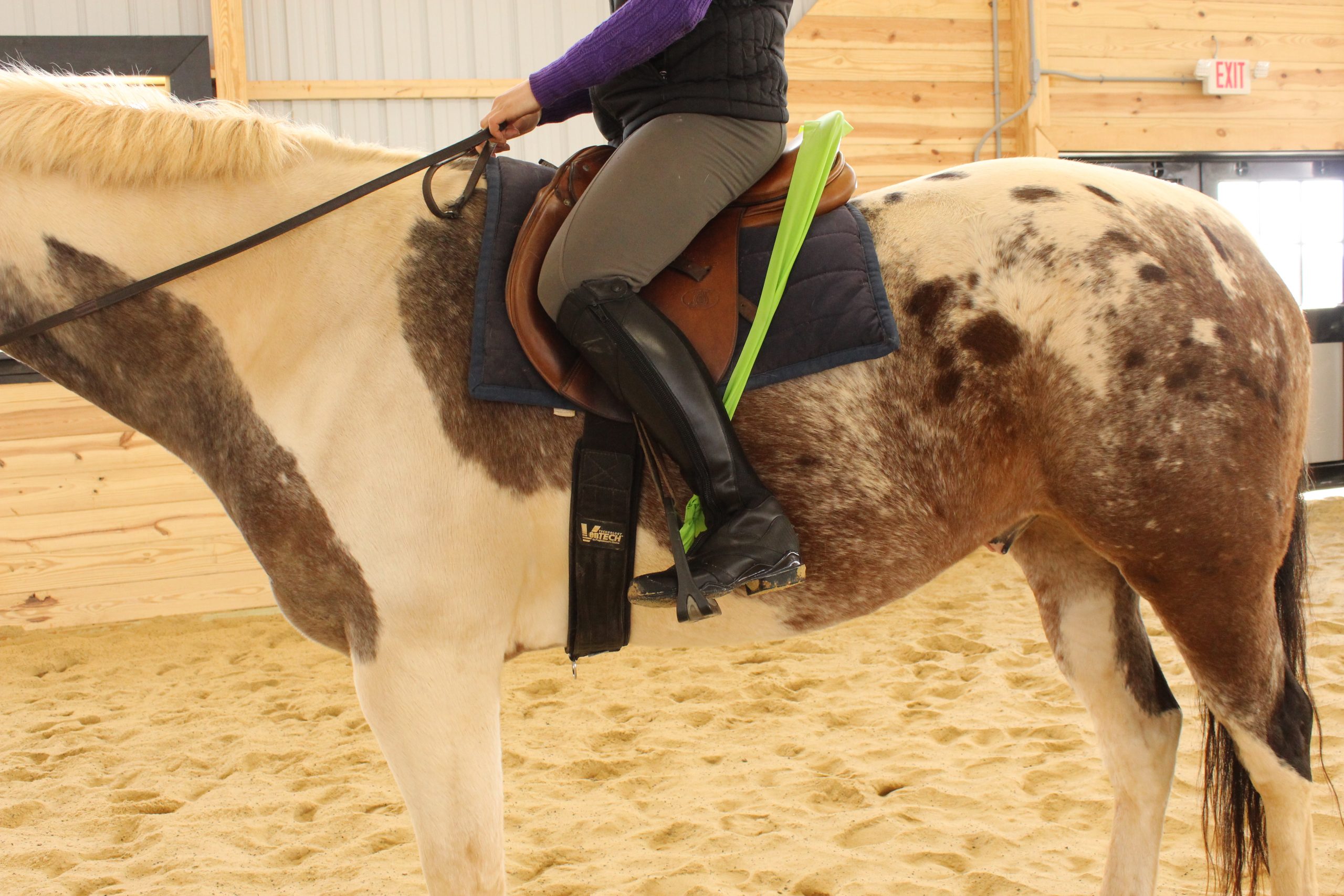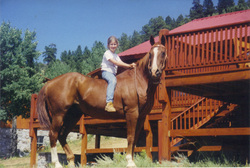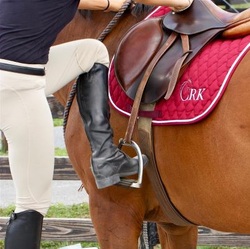One thing you probably already know about me from reading my posts or watching my videos is that I love to learn and try new ideas. I enjoy finding new ways to better understand, explain and teach different ideas or concepts.
Today I’d like to share a few insights from one of my favorite riding instructors, Wendy Murdoch. I have only known Wendy for about a year and have worked with her in person just a handful of times but I have already learned so much from her.
If you don’t know Wendy, she is a Centered Riding Instructor and a Feldenkrais practitioner. She combines a unique background of experience and knowledge in anatomy, biomechanics, and body work, with her personal experiences working alongside some of the most recognizable names in the equestrian community, Sally Swift and Linda Tellington Jones. Wendy is also the author of several books and DVDs, most notably her “50 Fixes” series.
I was drawn to Wendy because she teaches in a way that takes into account the individuality of each horse and rider combination and she uses a variety of exercises and tools to help riders and horses feel the goal of the exercise, whether that is a change in position or shift in balance.
Wendy is going to be teaching a clinic at my farm this weekend, so I have been thinking about the many different ideas, tools, or exercises I use that came, at least in part, from Wendy.
There are three ideas I would like to share with you here.
Experimentation is Important
We are all a bit different. Meaning physically, we all have different body types, levels of flexibility, and shifting points of balance. While there are fundamental principles of riding, we all need to find what exactly works for us.
If we become too preoccupied with a piece of instruction or a riding ideal, such as “I need to keep my heels low”, or “I need to sit up very tall”, it can actually begin to have a negative impact on our riding, making us too stiff, or preventing us from discovering a way that feels better.
When we allow ourselves to experiment, trying different positions, different ways of movement, different ways of riding, we can unlock a whole new level of skill, balance, comfort, and confidence.
As Wendy says, “We each have within us our own teacher, that recognizes what is best for our own well-being.”
Small Adjustments can make the Biggest Difference
It is exciting to make a big shift in our riding and feel a new level of improvement. However, we eventually reach a point in our riding where perhaps we don’t need to make huge changes. But even small adjustments in how we sit, how we move, or even how we think, can have the biggest impacts on our riding.
Riding is a lifelong pursuit, and as long as we ride and work with horses, we can always find more small adjustments, and different ways of doing things, that make all the investment into ourselves and our learning worthwhile.
Look for Ways to Find the Feeling – Teaching & Learning Through Kinesthetic
The big three learning styles for humans are visual, auditory, and kinesthetic. We are often stronger in one form of learning than the others, and probably our best learning happens when all three are combined to some degree, but one of the most effective ways to learn skill sets for riding is through kinesthetic, doing it and feeling it. However, this powerful form of learning is often left out by many instructors as they rely more heavily on just giving verbal instructions or descriptions.
My favorite teachers have always incorporated kinesthetic learning, and Wendy is a master at this, using all kinds of creative props and tools to help a student really feel what she is trying to convey.
I want to give you two examples of specific tools that I learned from working with Wendy and reading her books.
The first is the exercise band stretched from stirrup to stirrup to create a sort of “v-rigging” for the stirrups. Why is this useful? Many riders struggle to keep their leg back, especially if they have become accustomed to riding with the heel pushed down and the lower leg forward.
The band gently pulls the lower leg back, allowing the rider to feel the position without having to think constantly about “holding” their leg back.
The second tool that I use often with riders is the balance cushion. Simply a plastic cushion filled with air, it presents an unstable surface that allows a rider to feel two skills that are essential for riding.
#1 – lengthening the lower back and bending the knees to maintain balance
#2 – feeling a soft, adjustable ankle that allows for stability, standing on the cushion helps one quickly feel how when the ankle locks, all balance is lost
Opportunity for You
I hope that these insights will make a difference for you too. As I mentioned, Wendy is teaching a clinic at my farm this weekend and I am very excited for the opportunity to host her.
In last week’s email I had mentioned that I was doing something exciting, well here is what we’re doing. Wendy’s clinic is going to be livestreamed on Saturday, she is starting with an unmounted interactive demonstration, and now you will be able to participate fully from the comfort of your own home! After the unmounted demo we have three groups of riders, each working on something different so you can apply what they learn to your own riding.
If you’re interested, there are two ways you can join in on this livestream.
You can purchase access to the Livestream here: https://crktrainingblog.com/wendy-murdoch-clinic
Or, if you are a Training Journals member, the livestream is available as a Free bonus: https://crktrainingblog.com/jointrainingjournals
Have a great day and I will see you in the comments!
Callie


















7 Responses
Callie – great post – where might one get a soft cushion? and what is it called were I to order it on Amazon? thanks Lindsay
How do you know what length the exercise band is to be?
The length is variable, my best suggestion is to tie the band and then just keep tweaking it. The starting length of the green one in the picture is about 6′. Here is a direct link to Wendy’s site with her article about using the band: http://murdochmethod.com/no-14-solving-your-leg-position-with-an-equiband/
Its very interstin.Thanks for sharing your valuable and informative instuction.I have One question that I have is what adjustments do I need to make to use a crop instead of a whip?
Thank you.
Hi Issac,
Thanks for your comment! The most important factor when using either a whip or a crop is to use it in a way that is “pressure, release” instead of punishing. I think this is easier to see on video, so here is one that will be helpful for you: https://crktrainingblog.com/better-riding/how-to-correctly-effectively-use-a-whip/
Hi Calli
QUESTION .. if I join & become a member of the TRAINING JOURNAL….
Can I purschase the live stream with Wendy Murdoch that is occurring this Saturday BUT watch it
anytime ?( I’m not able to make the live stream )
Thanks for all that you do for us & the horse world
Hi Lisa,
As an Effortless Riding Course member, you already get the livestream QA that I am doing with Wendy on Monday for the course. The clinic this weekend will not be filmed or streamed. This post you commented on was from April last year where we did livestream an event.
Let me know if you have any other questions – these kinds of questions are best through my email [email protected], as I only check the comments here on the blog about once a week and may not see it in time!